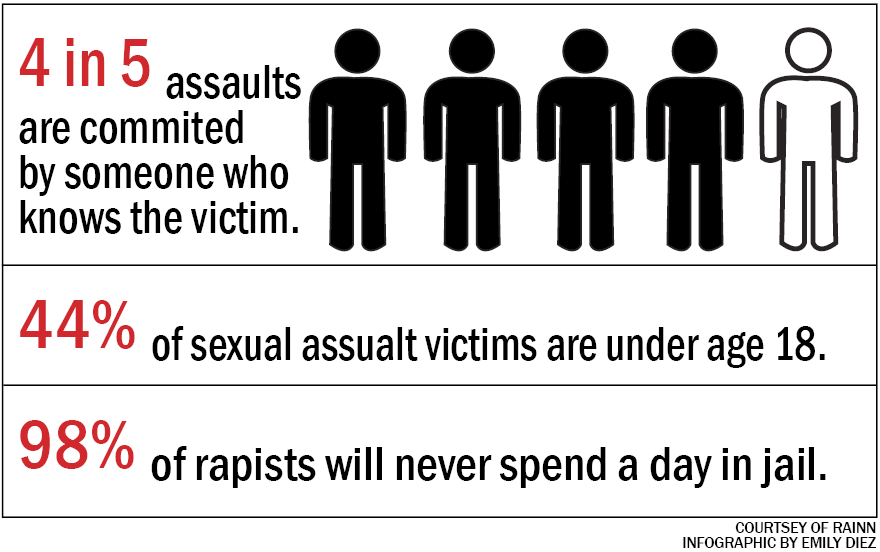The Reality of Rape Culture
May 24, 2016
Rape culture finds its way into our life casually, so much so that sometimes it is hard to realize how constantly we are flooded with its implications. The consequences of complying to these issues go beyond hurting a victim, but hurting generations of victims to come. While ignoring the issue will not stop it, perhaps acknowledging it and advocating for change of these behaviors will. Rape culture seeps into our lives through various ways, a few being:
When news outlets:
- call incidents of rape “sex” in headlines.
- refer to rape as a “sex scandal.”
- sympathize with the rapist (e.g., discuss how great their futures were/how they will lose a school scholarship, etc.).
Students who:
- joke about rape incidents.
- are grateful their teacher got arrested over sexual battery because they dislike their teacher or think their grade will improve.
Blaming the victim of rape:
- when the rapist is a legal adult and the victim is a minor because they believe it was consensual beyond law.
- because they were drinking.
- for wearing “distracting” or seemingly provocative clothing.
Ignoring rape:
- by celebrities because the celebrity is idolized.
- and reports of rape on college campuses to avoid legal trouble for the college and keep any athletes involved out of trouble.
Portrayal in media like:
- casual advertisements that allude to rape (Bloomingdales advertisement that suggests to “spike your best friend’s eggnog when they’re not looking”).
- changing lyrics in “Grease: Live” yet refusing to censor/change the lyrics “did she put up a fight,” despite upset public backlash.
- songs in popular culture (ex. “I know you want it” lyric in “Blurred Lines” by Robin Thicke).
- sexualization of women in advertisements (e.g. naked women in perfume advertisements).
Protecting male rapists and dismissing female victims by:
- telling women they should not be raped, but not addressing that people (men or women) should not rape others.
- saying that “boys will be boys” or using their hormones as an excuse for their actions.
- telling girls to take sexual harassment (e.g. cat-calling) as a compliment.











